READY TO GET STARTED?
REQUEST A FREE ESTIMATE
Fill out the form below or call (888) 466-7849 for a free, no-obligation estimate.
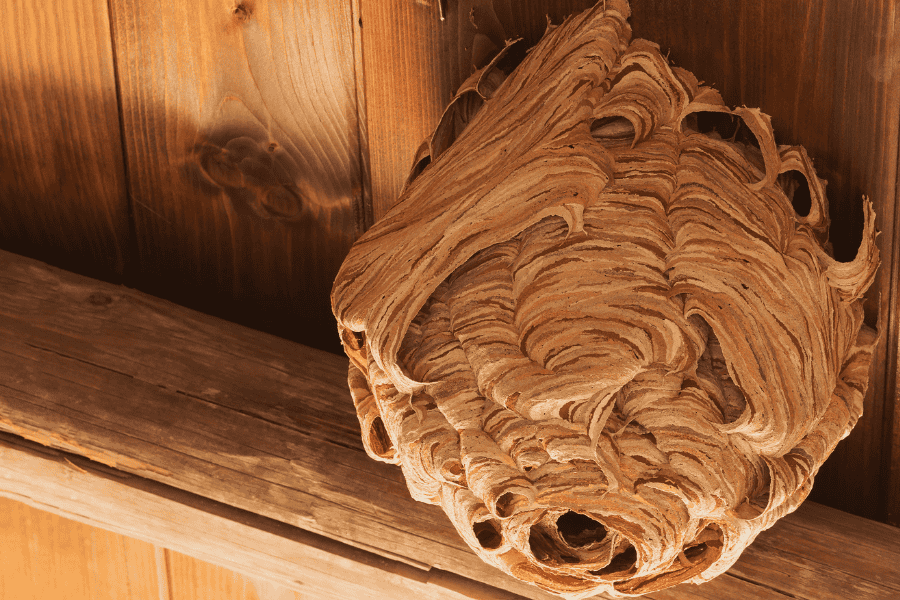
Stinging pests, like wasps and hornets, can turn a relaxing afternoon in your yard into a stressful experience! These pests can not only be a nuisance but be a danger to both humans and pets. Let’s dive into how you can prevent wasps and hornets from taking over your yard!
It’s important to understand the difference between wasps and hornets so you can effectively prevent them.
Both wasp and hornet stings can be very painful and cause similar symptoms, including swelling and pain around the sting site, burning sensation, itchiness, and more.
Let’s review the preventative measures to place around your Florida property to avoid stinging pests:
If you’ve noticed an influx of stinging pests around your Florida home, it’s best to call a pest control company near you. Removing nests can be extremely dangerous, so it’s always best to leave it to a professional pest control expert who can safely remove the nest and provide you with recommendations on preventing wasps and hornets in the future.
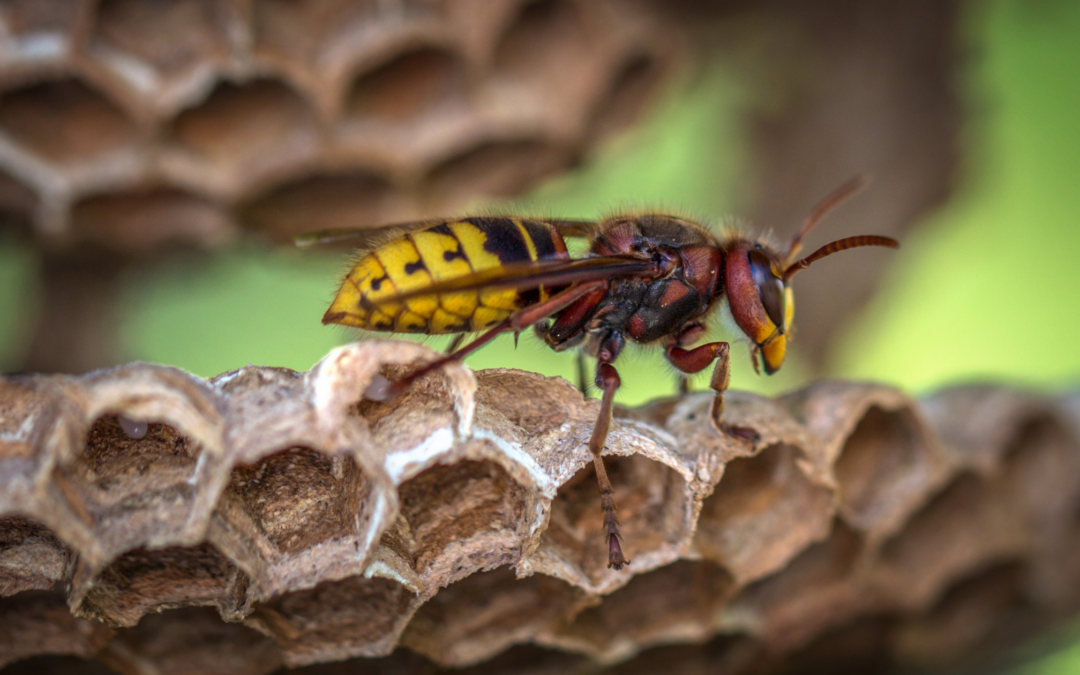
Georgia’s warm climate and lush landscapes make it a haven for various insects, including some that pack a painful sting. While many of these stinging insects play crucial roles in our ecosystem, encountering them in and around our homes can be alarming and potentially dangerous. In this guide, we’ll explore some of the most common stinging insects found in the region, the threats they pose, and how to deal with them effectively.
One of the most notorious stinging insects in Georgia is the yellow jacket. These aggressive insects are easily recognizable by their black and yellow striped bodies. They typically build their nests in hollow trees, underground burrows, or within wall voids of buildings. Yellow jackets can pose a significant threat to humans and pets, especially when their nests are disturbed. Their stings are painful and can cause allergic reactions in sensitive individuals.
Yellow jackets are about half an inch to three-quarters of an inch in length, with distinctive yellow and black markings on their bodies.
If stung by a yellow jacket, it’s essential to remove the stinger promptly to minimize venom injection. Clean the affected area with soap and water and apply a cold compress to reduce swelling. Over-the-counter antihistamines can help alleviate itching and discomfort.
Removing a yellow jacket nest can be hazardous and is best left to professionals. Attempting to remove the nest without proper equipment and expertise can provoke the colony, leading to aggressive behavior and more stings.
To prevent yellow jackets from nesting near your home, seal any openings in walls, windows, and doors. Keep outdoor garbage cans tightly sealed and promptly clean up any food spills or crumbs.
Paper wasps are another common stinging insect found in Georgia. They construct umbrella-shaped nests from a papery material, often hanging from eaves, tree branches, or shrubbery. While they are generally less aggressive than yellow jackets, they will defend their nests if threatened.
Paper wasps are slender with long legs and wings, typically brownish in color with yellow markings.
Treat paper wasp stings similarly to yellow jacket stings. Remove the stinger, clean the area, and apply a cold compress to reduce swelling.
If a paper wasp nest is located in a high-traffic area or poses a threat to residents, it’s advisable to contact a professional pest control company for safe removal.
Regularly inspect your property for signs of paper wasp nests, especially in the spring and summer months. Remove any existing nests during the winter to prevent reinfestation.
Hornets are another type of stinging insect that can cause concern for Georgia residents. These insects are larger than yellow jackets and paper wasps and often build their nests in trees, shrubs, or even on buildings.
Hornets have stout bodies with predominantly black coloring and white or yellow markings. Their nests are typically grayish and football-shaped.
Treat hornet stings similarly to other stinging insect stings. Remove the stinger, clean the area, and apply a cold compress to reduce swelling.
Due to the size and aggression of hornets, it’s best to leave nest removal to professionals. Attempting to remove a hornet nest without proper equipment and expertise can be dangerous.
Regularly inspect your property for signs of hornet activity, especially in secluded areas such as attics, sheds, and trees. Seal any openings or gaps in buildings to prevent hornets from entering.
In conclusion, encountering stinging insects in Georgia is not uncommon, but with proper knowledge and precautions, you can minimize the risks associated with them. If you’re dealing with a stinging insect infestation on your property, it’s best to seek assistance from a professional pest control company near you.
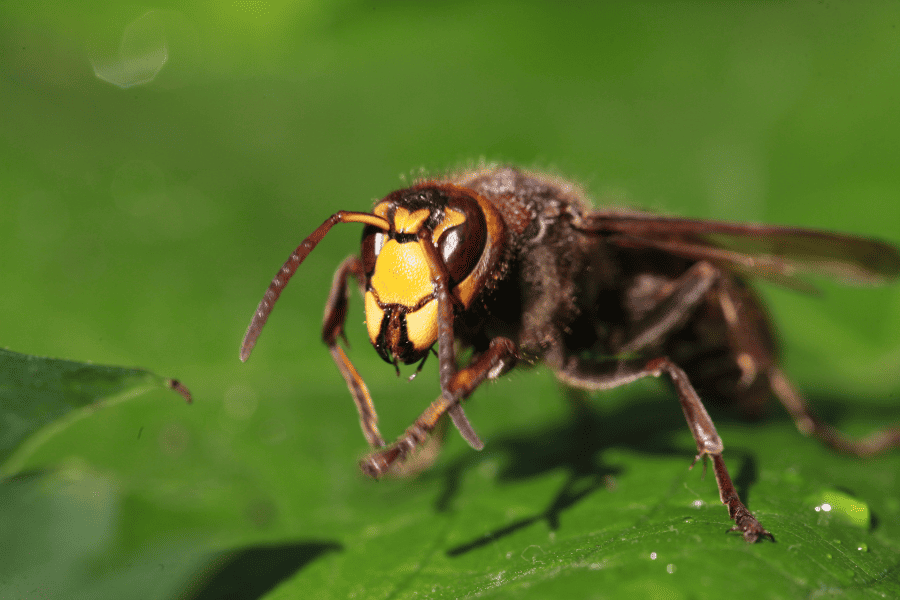
Stinging pests can be a real nuisance, and in some cases, a danger to your health. From hornets and wasps to fire ants, these pests can leave painful stings that can cause itching, swelling, and in severe cases, anaphylaxis. Let’s take a closer look at the different types of stinging pests and provide tips on how to prevent and identify them.
Hornets: Hornets are large, aggressive wasps that can pack a powerful sting. They typically build large paper nests in trees, bushes, and other outdoor locations. To prevent hornets from nesting on your property, inspect your home’s exterior regularly and seal any openings or gaps. Keep your outdoor trash cans sealed and dispose of food waste properly. If you do encounter a hornet’s nest, do not attempt to remove it yourself. Instead, call a professional pest control company.
Wasps: Wasps are similar to hornets, but they tend to be smaller and less aggressive. They can still pack a painful sting, however, and they can build their nests in a variety of locations, including under eaves, in trees, and shrubs. To prevent wasps from nesting on your property, keep your home’s exterior well-sealed, dispose of food waste properly, and keep outdoor trash cans sealed. If you do encounter a wasp nest, call a professional pest control company to safely remove it.
Fire Ants: Fire ants are small, reddish-brown ants that are known for their painful sting. They build large mounds in lawns and gardens and can be especially active during the summer months. To prevent fire ants from taking over your yard, keep your lawn well-maintained and avoid leaving piles of leaves or other debris in your yard. Treat fire ant mounds with bait or insecticide specifically designed for these pests and wear protective clothing and gloves when working in the yard.
If you discover an influx of stinging pests around your home call a professional pest control company if you do encounter a nest or infestation.
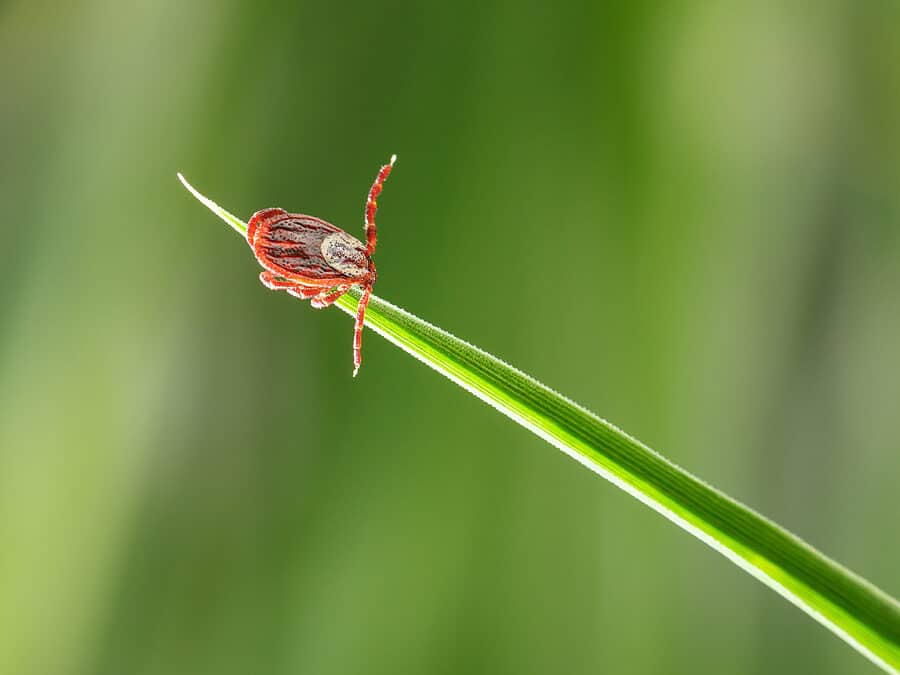
While most people associate summer with warmer weather and more time spent outdoors, it also marks peak season for many Georgia pests. Here are 5 of the most common summer pests in Georgia and how to prevent them.
Mosquito season peaks in summer (peak months are June to September) with activity at hits highest. Mosquitoes are most active at dawn and dusk. These pests transmit serious diseases to both humans and pets. They also breed in standing water found around your home. You can get rid of mosquitoes this summer by:
Ticks are active from late spring to early fall. These summer pests are known to transmit serious disease to humans and pets. They are commonly found wooded areas and areas with tall grass. Avoid ticks this summer by:
Spiders are common in summer as they are often driven from their hiding places by the warmer temperatures (e.g. your attic). While spiders are beneficial to have around as they eat other common pests found in your home, they can be a nuisance. Keep spiders at bay this summer by:
Ants emerge in the summer in search of food (particularly sweets and grease) that they take back to their colonies. This is why they are often found in kitchens. You can prevent ants by:
Stinging pests, such as wasps, hornets, bees, and yellow jackets, are prominent in the summer months. These pests will often forage for food during the warmer weather. Avoid stinging pests by:
Don’t let summer pests ruin your time outdoors. Contact your local pest control company today for a free evaluation.
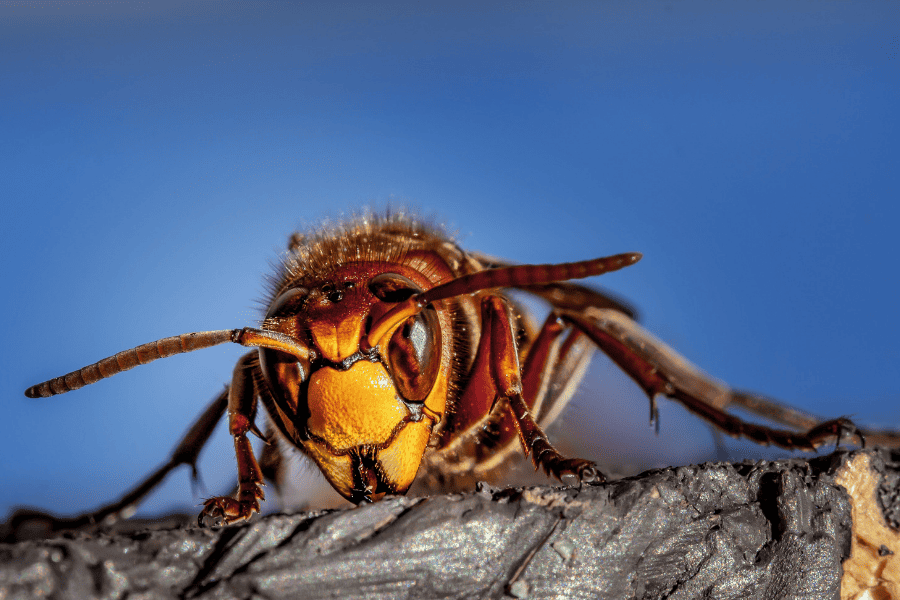
When it comes to stinging pests, there are a few common culprits that people encounter: wasps, hornets, and bees. While these insects may look similar, they have distinct characteristics that set them apart. Understanding the differences between them and knowing what to do if you encounter one can help you stay safe.
Wasps are slender, black, and yellow insects with smooth bodies and narrow waists. They are social insects that live in large nests with multiple females. While they are not typically aggressive, they will defend their nests if they feel threatened. Some species of wasps, like yellow jackets, can sting multiple times and their stings can be painful and potentially dangerous for those with allergies.
Hornets are larger than wasps and are usually black with yellow or white markings. They have a distinctive, round body shape and are known for their powerful sting. Like wasps, hornets are social insects that live in large nests. They can be aggressive if they feel their nest is being threatened, and their sting can be particularly painful.
Bees are typically plumper and fuzzier than wasps and hornets and are usually brown or black with yellow markings. Unlike wasps and hornets, bees are not naturally aggressive and will only sting if they feel threatened. Bees are important pollinators and play a vital role in our ecosystem.
If you encounter a stinging insect, it’s important to stay calm and avoid swatting or provoking it. If you are near a nest, move away slowly and quietly. If you are stung, remove the stinger by scraping it with a flat object like a credit card, wash the area with soap and water, and apply a cold compress to reduce swelling.
If you have a severe allergic reaction to a sting, seek medical attention immediately.
By understanding their behaviors and taking precautions to avoid them, we can coexist safely. If you have a problem with a nest or infestation, it is best to call your local professional pest control company for safe removal.